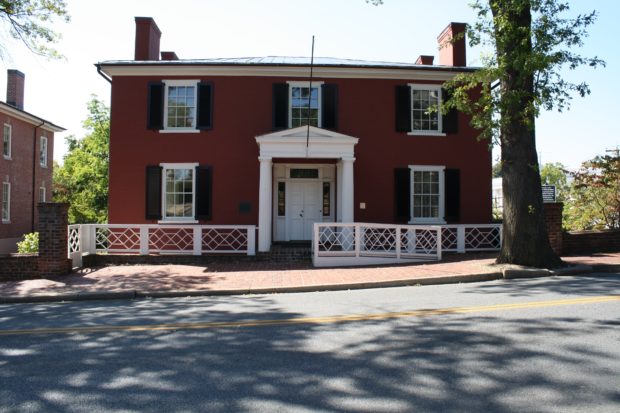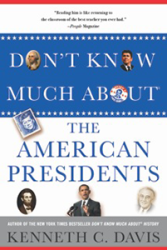(Original post revised from 11/2015)

Woodrow Wilson Birthplace, Staunton, VA (Photo: Kenneth C. Davis 2010)
The last president to be raised in a slaveholding household, Woodrow Wilson was born at the manse, or Presbyterian minister’s residence, in Staunton, Virginia on December 28, 1856.

Woodrow Wilson , 1919 (Source: Library of Congress Prints and Photographs digital ID cph.3f06247.)
Thomas Woodrow Wilson grew up in the Deep South during the Civil War as his father moved the family to Georgia and South Carolina. (He later dropped the first name.) A secessionist, his father organized the Presbyterian Church of the Confederate States, and Wilson recalled seeing Robert E. Lee as wounded Confederate soldiers were brought to his father’s church.
At twenty- six, Wilson earned his Ph.D. in political science from Johns Hopkins and began writing scholarly works about government and history— including a five- volume History of the American People, completed after he joined the Princeton faculty. In 1902, he was named president of Princeton.
With the backing of powerful Democrats, he ran for governor of New Jersey and won easily in 1911. He then ran for president and, when former President Theodore Roosevelt announced his third-party run in 1912, Wilson was all but assured of victory.
Initially reluctant to go to war in Europe, he led the nation into World War I. Wilson was awarded the 1920 Nobel Peace Prize, largely for his efforts to organize the League of Nations which the U.S. Senate rejected.
Generally viewed as a progressive Democrat who tried mightily to keep the nation out of war but was eventually forced into it, Wilson has consistently been ranked among America’s top ten presidents. But like any admired or successful president, he did not have a blotless record. Despite many impressive accomplishments, Wilson had flaws and shortcomings that remain troubling. In one recent assessment, biographer John Milton Cooper, Jr., fairly summed them up:
“Two things will always mar his place in history: race and civil liberties. He turned a stone face and deaf ear to the struggle and tribulations of African Americans. . . . During the war, Wilson presided over an administration that committed egregious violations of civil liberties. . . . It remains a mystery why such a farseeing, thoughtful person as Wilson would let any of that occur.”
—John Milton Cooper, Woodrow Wilson (p.11)
The first answer is his upbringing. Although not a fire-breathing white supremacist, he was a product of his birth into a slaveholding house hold with Confederate loyalty. His heritage, and the times, played a role. The second is politics. Keeping a Democratic Southern Congress quiescent required Wilson— and many of his successors in the White House— to tread lightly on matters of race.
Adapted from DON’T KNOW MUCH ABOUT THE AMERICAN PRESIDENTS. Read more about Wilson and his presidency.

Don’t Know Much About® the American Presidents (Hyperion paperback-April 15, 2014)
Read more about Woodrow Wilson at the Library of Congress.